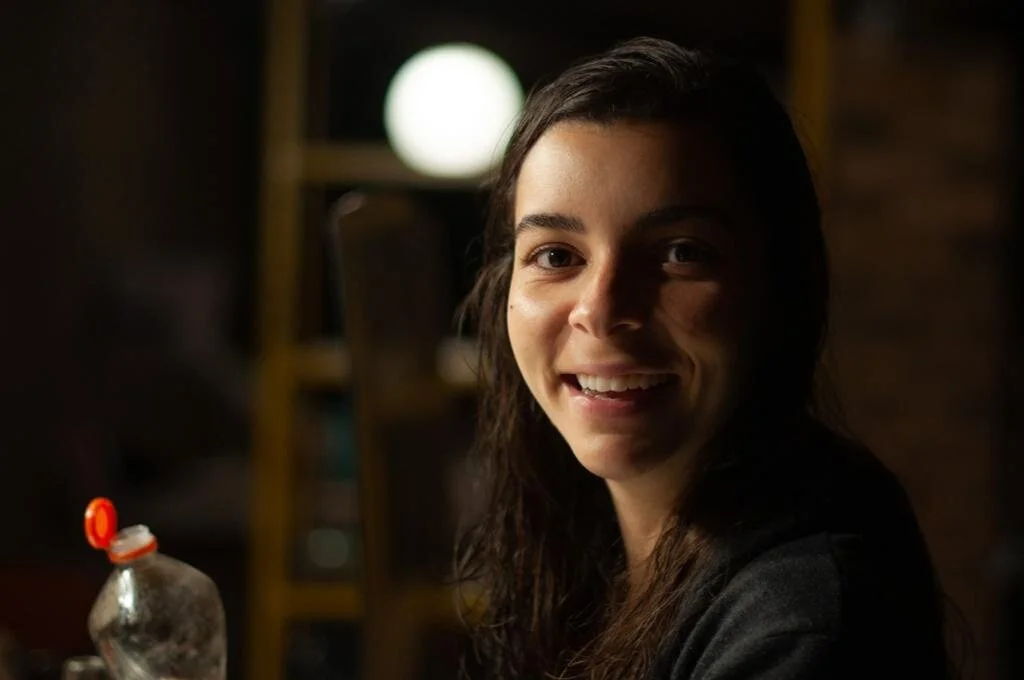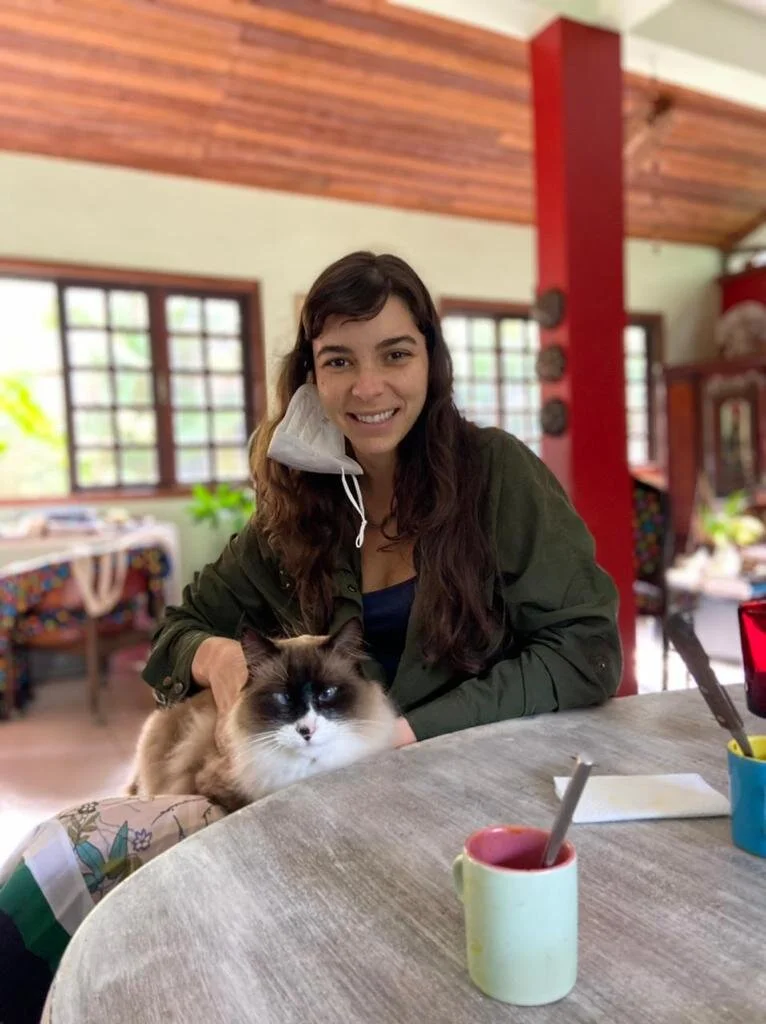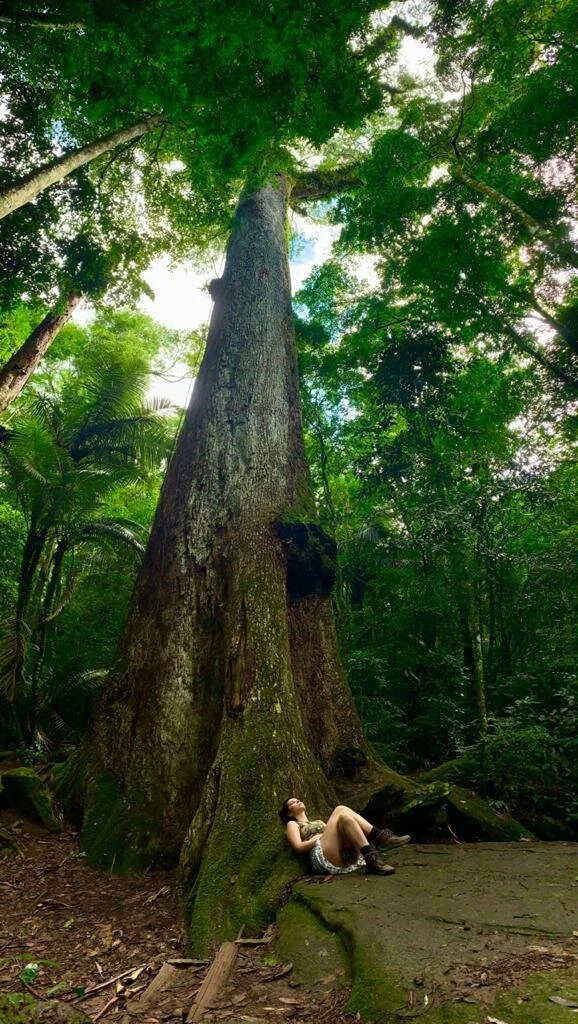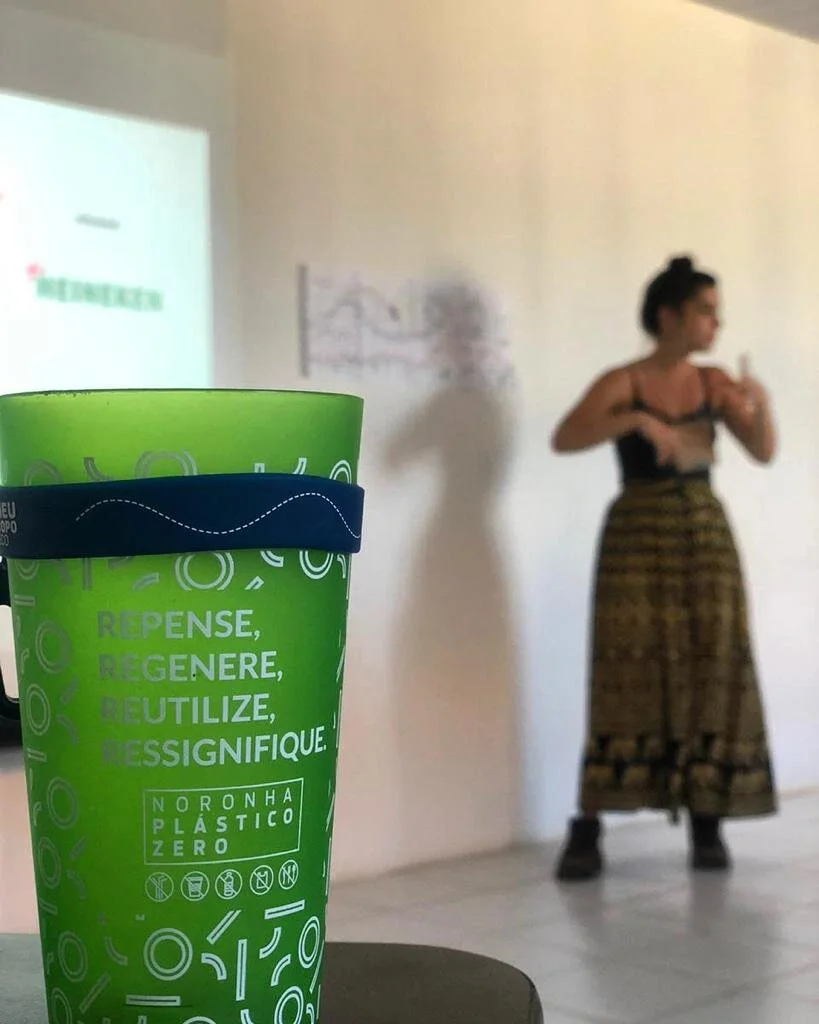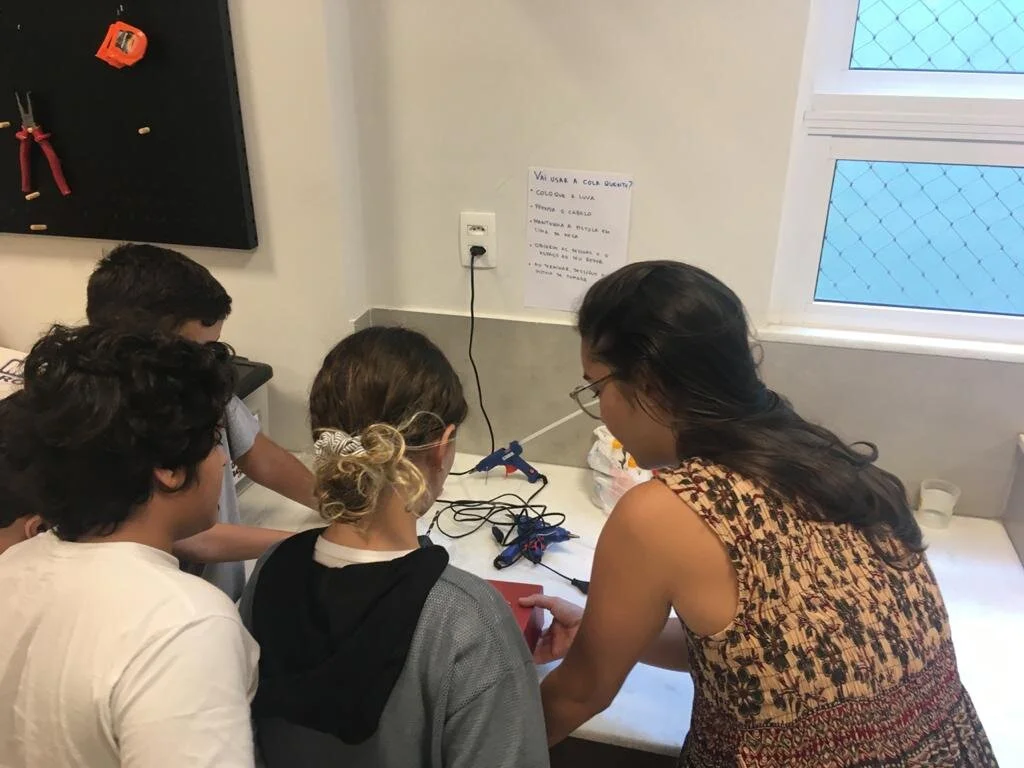Meet the one who started the My Journey Is Series!
How did you come up with this concept of My Journey Is…?
Marti had been provoking us in a good way. We have such a great network of amazing people and we can get pretty much anywhere and talk to anyone and all of these amazing people have different stories. Sometimes the community manager gets to know everyone, but not everyone gets to know everyone.
It was an opportunity to have a public space for everyone to get to know one another inside the community. The fact that we as community managers or staff get to know all the youth and different people, but they don't always get to know each other.
What are you doing now?
So back then, I was studying at UC Berkeley, and then I came back to Brazil to finish my degree. I was studying international relations, so I came back and then I started working in education. I have been doing that ever since.
So I studied, I worked in education from English courses to actual schools, to doing projects like global citizenship projects and design thinking with teenagers. So everything I do is somehow related to positive impact or social impact and education. So that's pretty much what I've been doing.
I just finished the project here in Brazil, where I developed an online course for 70 ambassadors for an NGO whose goal is to basically create and support and advocate for good public education in Brazil.
What challenges have you faced?
I would say some of the challenges are mainly connected to places, culture. At international connector, we have been talking for so long about the impact of new generations in the workplace. And that's what I feel like I've struggled with during these years ofworking in major companies. Big companies have their own culture where you're either a workaholic or nothing changes. like Somehow there's no in-between and at the same time schools, sometimes they can be really afraid of trying new things.
So if you take a really good staff member that is willing to experiment, that can be amazing. If not, then you're just stuck trying to do something new, but always having people telling you that it might not work. And then how do we explain that to parents, when we are working with children and youth? Or how do we. That's exactly why I wanted to work at a school because I work in education, but I have also worked in companies coming up with the lesson plans with teacher training and all these kinds of things.
But my insight was that "I'm not going to actually understand what goes on in terms of education, unless I become a teacher or I work at a school" and that's exactly what I did. And now I know what kind of struggles a teacher faces. I think those are the things that I've struggled with.
What resources have helped you so far?
I think the main way to get over these challenges is to just be humble.
People have been there for longer than you and you can see if you empathize with them, you can see why they're coming to you with those problems, because they've lived that before. Being humble, listening, and then really trying to work together so that you know you can convince them that maybe it is worth the risk - that is, even though it has happened in the past, maybe it won't happen now.
Like there's no way we're going to know unless we try it. I think being less arrogant as a young person who is in that job and being more humble and trying to work together with people. There's so much you can learn from them.
Moving into either peacekeeping in the education sector. What inspired you originally to move?
I was born and raised in Brazil and both my parents are public servants and work in education. And so since I was really young, I have been listening from my parents that this is the way to go. This is the way to solve problems. I started studying law because in Brazil, law is a bachelor's degree and not a graduate program. But later I realized that I was more of a person who wanted to bring people together, instead of choosing sides.
So I started studying international relations and I ended up getting into programs and internships that got me to a place where I was really into social entrepreneurship. So I worked with social businesses when it first started here in Brazil. That's actually how I got to International Connector, because I knew enough value from those programs.
I always wanted to work in social impact, but after a while, you realize that everything stems from education. When you look at things more systematically, everything involves making education better
What advice do you have for other young people?
I think in the beginning when you're starting your journey, especially regarding social impact and your professional journey as well. Just try to say yes to a lot of things. But at the same time, when you get older learn how to say no.
What got me to having so many different experiences was that I had the time. And so that's what I told people. Can I help you with so I can learn? Can I organize something for you when you're doing this workshop so that I can be a part of it?
This was the resource that I had. It was abundant. It was time. So I used that and I said yes to a lot of things, and I really asked for a lot of things.
I started studying international relations. It's not like I have technical expertise in something specific. My thing is people. Anyway, so I would say that when you get older, learn to say no so that you know where your focus is at that moment. So the picture is: you've already tried a bunch of things. Now focus and don't get overwhelmed with doing nine different things because you're not going to do them well, you know? In the end, it's your career. So make sure you make conscious choices on what you're going to do - they may not always be right, but at least you know you are in charge of your life!

